Dear fella-whitefellas on Australia Day…
January 26th, 2016 | Published in Race(ism)
Dear fella-whitefellas on Australia Day,
Is this a good time to talk about racism?
Probably not. Nobody wants to do that. Not when the barbie’s hot, and the beer’s cold and the Hottest 100 has started its countdown. Just the same, we’ve been dragging our feet on this – for 228 years.
Stick your head out the door on Australia Day and you’re bound to see Australian flags flying from gate posts and aerials; being dispensed from street corners, and splashed on t-shirts, shorts, and baseball caps. If you’re near water, the red-white-and-blue beach towels, bathers and thongs are also de riguer and, not to stop at clothing, you can have your false eyelashes, fingernails, and sunglasses in the colors of the flag as well.
The whole scenario reminds me of Grand Final Day, when the merchandise is different, but the triumphalism is much the same.
What are we celebrating on Australia Day?
On 26 January, 1788, Captain Arthur Phillip took possession of the colony of New South Wales and raised the British flag for the first time in Sydney Cove.
Aboriginal people call it Invasion Day, Day of Mourning, Survival Day or, since 2006, Aboriginal Sovereignty Day – to indicate that all Aboriginal nations are sovereign and should be united in the fight for their rights.
Brett J Cole calls it “Home Day”, in memory of the day his “great, great, great grandfather answered the door and another man pushed his way in.”
Perhaps, for many white people, Australia Day is simply an excuse to party, with little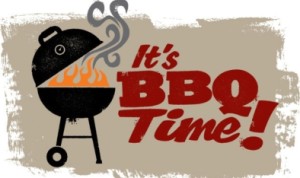 thought for meaning or history or whose homes their ancestors invaded. The barbecues and beer and Hottest 100 effectively distract from stories of genocide, dispossession, discrimination, and disadvantage; conveniently and collectively so.
thought for meaning or history or whose homes their ancestors invaded. The barbecues and beer and Hottest 100 effectively distract from stories of genocide, dispossession, discrimination, and disadvantage; conveniently and collectively so.
This video of the brutal extermination in Tasmania provides a window into the backstory.
Aussie Aussie Aussie oi oi oi
Not that we necessarily need to be distracted from something we’ve been trained to ignore. Peggy McIntosh describes white privilege as an invisible package of unearned assets that white people can count on, but about which they can (and are meant to) remain oblivious.
Among other things, as a white person (or, possibly, someone who can ‘pass’ as white, and chooses to do so):
- My racial identity is unlikely to be challenged, whereas it might well be if I was Aboriginal (as Mykaela Saunders explains in her article But You Don’t Look Aboriginal).
- I can turn on the television and see people of my race widely represented.
- I can be ignorant of the languages and customs of Aboriginal and Torres Strait Islander peoples without being penalised in mainstream society.
- I can be sure my children’s education will affirm their identity.
- I can be sure that if I need legal or medical help my race will not work against me.
- I am not expected to speak for all the people of my racial group.
- I can be successful without being called a ‘credit’ to my race.
Resorting to white fragility
Once we become aware of white privilege, and acknowledge it, we become accountable. That’s uncomfortable. The temptation is to ward it off, and one of the ways of doing that is by resorting to white fragility.
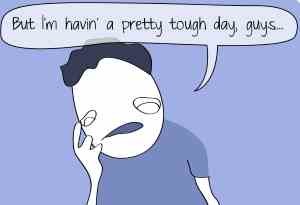 So, says Amelia Shroyer, instead of grappling with the issues, we bring conversations back to our own feelings. We say “not all white people” and “all lives matter” and totally miss the point. We ask people of color to educate us – and to be “nice” about it. We talk about our good intentions. We bring up the times we were also treated badly.
So, says Amelia Shroyer, instead of grappling with the issues, we bring conversations back to our own feelings. We say “not all white people” and “all lives matter” and totally miss the point. We ask people of color to educate us – and to be “nice” about it. We talk about our good intentions. We bring up the times we were also treated badly.
- You’re the racist for making an issue of race.
- It’s not about race; that person[victim] was just behaving badly.
- I never colonised anyone. It’s nothing to do with me.
- I know a black person who sees things differently.
- Surely there are more important things to worry about?
- There’s no such thing as race. I don’t see color.
Starting to LISTEN
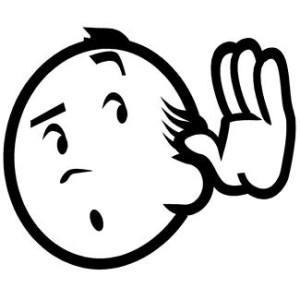 Suppose we reach a stage where we can see, name, and accept responsibility for white privilege – what then? I’m not exactly sure, except the first requirement would seem to be to LISTEN, and a good place to start could be this powerful speech by Stan Grant about the reality of life for Aboriginal peoples in the “sunburnt country” of the “Australian dream”. Responses to it are also instructive.
Suppose we reach a stage where we can see, name, and accept responsibility for white privilege – what then? I’m not exactly sure, except the first requirement would seem to be to LISTEN, and a good place to start could be this powerful speech by Stan Grant about the reality of life for Aboriginal peoples in the “sunburnt country” of the “Australian dream”. Responses to it are also instructive.
It can be too easy to barge in with ‘solutions’ without understanding the issues or being aware of the range of viewpoints. Learning to listen within other frames of reference is crucial, and something I suspect many politicians (those who orchestrated the Northern Territory Emergency Response (NTER), for example) are constitutionally incapable of achieving, being far too invested in their own power, privilege, and ‘superior’ whitefella expertise.
About changing the date of Australia Day
An internet search on changing the date of Australia Day yields several petitions. I have signed, and shared on social media, at least one of these petitions – before becoming aware that at least some Aboriginal activists say we need a treaty first. I will hold back on future such petitions until I am clearer about Aboriginal viewpoints.
About recognition in the constitution
Similar cautions apply to recognition of Aboriginal and Torres Strait Islander peoples in the Australian constitution. I originally supported the RECOGNISE campaign, believing that was the right thing to do. Gradually, however, I became aware of the ‘No to recognition’ voices among Aboriginal peoples (a topic of an earlier blogpost).
Here, for example, are 10 points against constitutional recognition from a post by Vote ‘NO’ to Constitutional Change:
- It wipes out sovereignty and land rights.
- It overrides native title.

- It doesn’t give rights.
- It turns blackfellas into ‘property’ of the ‘Crown’.
- It does not give blackfellas any power.
- It doesn’t protect cultural rights.
- It does not recognise cultural ownership.
- It does not protect cultural law/lore.
- It offers a restricted citizenship.
- It allows the government to make laws for blackfellas as a targeted race without limitations.
Comments from Blackfulla Revolution
Another group I follow, Blackfulla Revolution, recently invited questions, so I put one as follows:
“Dear people at Blackfulla Revolution, My question is about how to get guidance for white people whose main wish in relation to issues such as the proposed referendum on constitutional recognition would be to vote in a way that supports what Aboriginal people want. But, how do we find out what that is, in the sense of what the majority of Aboriginal people want, or what the overall consensus is? We are going to have to vote ‘yes’ or ‘no’ to a question (as yet unspecified) so supporting the majority view seems the only way to go…Joan Beckwith (from the 2020socialjustice Facebook page).”
Blackfulla Revolution’s response: “Hi Joan, first of all, thanks for taking the time and consideration to find out how best to support the majority when it comes to this vote. The government is ensuring that the ‘yes’ side gets strong publicity – high profile representatives, press releases etc., while silencing the ‘no’ side which, in my opinion, is far bigger. The vast majority of intelligent and aware Aboriginal people that I know do not want constitutional reform; in fact I don’t know any who do, apart from those being paid to promote it publicly. There are a number of Facebook pages dedicated to getting the ‘no’ message out, and we also support the ‘no’ vote. Last year an independent vote among online Aboriginal people revealed that over 80% were against it. Despite offering the findings to NITV and other media stations, they were not released. Thank you.”
Me: “Would it be okay to quote you? I personally follow some who advocate the ‘no’ case, but posting your comments to my sites might reach a slightly different group of people and draw some new ones (probably mostly white) into the conversation…Joan Beckwith.”
Blackfulla Revolution: “Sure.”
Conclusion
And so I come to the end of my Australia Day reflection on white privilege (owning it), white fragility (letting go of it) and where to from there (listening to Aboriginal and Torres Strait Islander voices).
Some sources (for starters):
- Blackfulla Revolution
- New Matilda website Aboriginal Affairs page
- Stop the Forced Closure of Aboriginal Communities in Australia
- Vote ‘NO’ to Constitutional Change
Scroll down to leave comments and/or suggest additional sources
First-time comments have to be moderated. I try to complete that process within 24 hours. Do check back. I greatly value involvement, always read comments, and respond to most. After your first comment, subsequent ones appear automatically.
Social justice is for everyone (previously 2020social justice) is also on Facebook (click here)
And Twitter (click here)
Best Themis blessings…Joan Beckwith
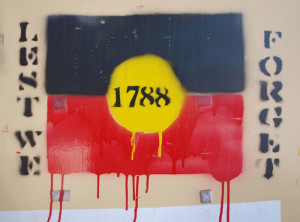
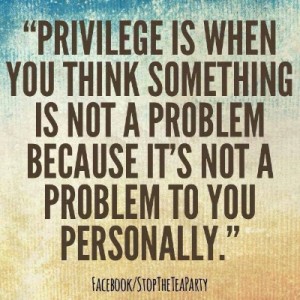



Additional notes and links, specifically on constitutional recognition, subsequently contributed by personal email:
The best source I [the email contributor] have found is a 2010 discussion paper from the Law council (https://www.lawcouncil.asn.au/lawcouncil/images/LCA-PDF/speeches/ConstitutionalRecognitionofIndigenousAustralians.pdf) which examines the bad clauses in the current Constittion and makes identifiable proposals.
The Human Rights Commission website is short of proposals and just talks about the current situation (https://www.humanrights.gov.au/publications/constitutional-reform-faqs-why-reform-constitution-needed)
The latest (and practically the only) actual outcome is a Dec 2015 media release from the Referendum Council which states that discussions will take place and that it is important to listen to everyone (https://www.dpmc.gov.au/sites/default/files/publications/communique_14_dec_2015.pdf). Since that time the Referendum Council has met three times and has not released anything further, though a final report is due at the end of June.
Additional article of interest on the need to stop “whitesplaining” racism. http://everydayfeminism.com/2016/02/how-people-whitesplain-racism/
Hi Joan
Thank you for putting into words something of how I have felt growing up in this ‘lucky’ country. I am a 2nd gen immigrant. My mother came here in 49′ as an immigrant, but basically a refugee of the 2nd world war.
I was discriminated against and bullied for my ‘difference’ all through school. But I was white. I had a home, family, food, education…
I didn’t find out until fairly recently (last 15 yrs) that we were brought in because of the white Australia policy. They liked tall white blond people. So we were acceptable.
I also found out that children were still being taken from their families after I was born (mid 60’s) and were called the stolen generation.
All of this deeply disturbed me.
In the last couple of years I have seen the movie Utopia, Stan Grant’s awesome oratory and many other written articles and news that is certainly not mainstream. My uneasiness over the whole subject has turned to absolute horror as the information begins to fill the gaps in my knowledge.
That they are still taking children Now! That they are kicking peoples off their land Right Now! to dig mines, drill petrol and dump radiated material. Now!! Not back in the old days! Now! The measures are all in place as far as I can see – I am sickened to my stomach that this is happening – and need to know what I can do to help.
Your comments about Recognise and Blackfulla Revolution have also been very helpful to me Joan, as I really want to know how to respectfully help to do what is truly needed and wanted by the majority of the Aboriginal peoples, but have been a bit cautious about asking..
I went to Survival Day in Adelaide today.
Thank you for your article today Joan.
Hi Daina,
A bit like you, I only found out when I was well into adulthood about the stolen generations. And, like you, it was happening when I was a child, and I feel angry that we were kept in such ignorance, and that it is still happening and that racism is still so rife. Even on my Facebook link to this website post, people have made comments of the ‘get over it, it’s all in the past’ kind.
As you note, it’s not in the past, and people like John Pilger and Stan Grant remind us of that. Just as well. The big change between the past and now is that we have access to so much more information, if we are prepared to process it.
My anger over being kept in ignorance as a child of the gross injustices of the stolen generations has been one of the springboards for my 2020socialjustice project (website, Facebook page, and Twitter). It’s also why I became involved in working with people seeking asylum and doing what I can to penetrate the secrecy around refugee policy and practices.
I’m also sorry about your own experiences as a child. The 60’s were a time of gross intolerance of any kind of ‘difference’. We have become more accepting of diversity in some ways, but still have a long way to go. And that especially applies to the situation for Aboriginal and Torres Strait Islander peoples. Who were here so many tens of thousands of years before us!
Thanks for taking the time and care to comment…Joan Beckwith.
Dear Joan,
Thank you for your great work.
Lind regards,
Lorraine H
Glad you like it, Lorraine. Appreciate your comment…Joan Beckwith.